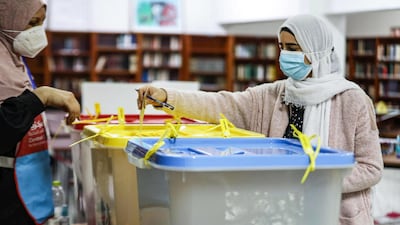The UN Security Council on Tuesday praised Libya’s new interim government, called for ceasefire monitors to be quickly posted and urged foreign forces and mercenaries to leave the country.
Jan Kubis started work on Monday as UN peace envoy to Libya amid hopes that the new provisional leadership would unite a divided country and pave the way for elections this year.
The 15-nation council said the agreement on Friday to a three-member interim presidency council and prime minister was an “important milestone”.
It urged the new officials to improve services for Libyans and work towards "national reconciliation".
The provisional leadership aims to unify Libya, which has been run by rival governments in the east and west since 2014.
The statement, which was agreed to by all council members, called for the withdrawal of the estimated 20,000 foreign forces and mercenaries from Libya and urged UN members to respect an arms embargo on the country.
It called for "a UN advance team” to quickly begin monitoring Libya’s warring forces for compliance with a ceasefire deal agreed to in October.
The team will initially operate from a base in Sirte, a coastal gateway city to Libya’s oilfields and ports.
Mr Kubis, a Slovakian diplomat, this week, spoke to political leaders amid hopes that the interim administration would chart a course towards elections on December 24.
On Tuesday, his office said he had spoken with major figures in Libya's east and west, the chosen head of the presidency council and prime minister-designate Abdulhamid Dbeibeh.
Mr Kubis urged Mr Dbeibeh to “form an inclusive and representative Cabinet” that reflects the “richness and diversity of Libyan society and its components”, and delivers services to ordinary Libyans, his office said.
Libya descended into chaos after a Nato-backed uprising in 2011.
It has been split between the Government of National Accord in Tripoli and the House of Representatives in Tobruk, which is backed by Field Marshal Khalifa Haftar’s Libyan National Army.


